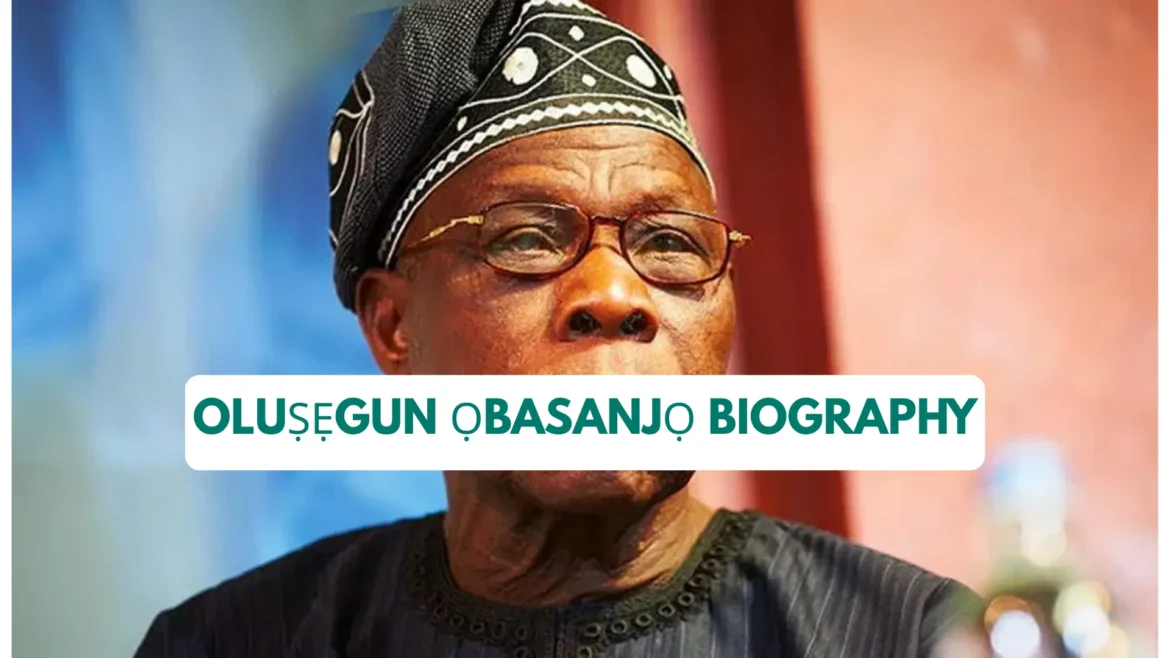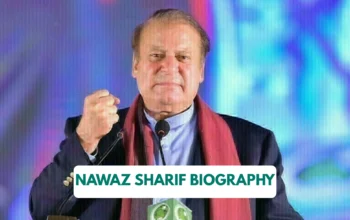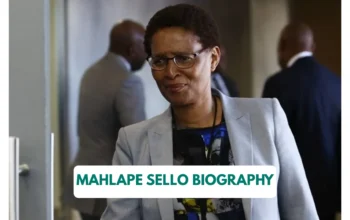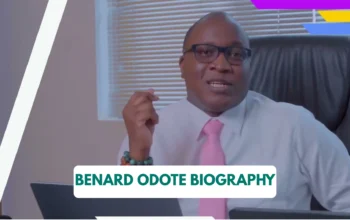Olusegun Matthew Okikiola Aremu Obasanjo (commonly written Oluṣẹgun Ọbasanjọ in Yoruba) is one of Nigeria’s most recognizable and consequential public figures — a soldier, two-time head of state, farmer, international statesman and influential elder in African diplomacy.
Born in Abeokuta in southwestern Nigeria in 1937, Obasanjo’s life spans the last decades of colonial rule, military takeovers, and Nigeria’s return to democracy. This biography traces his early life, military career, presidencies, key policies, controversies and the long shadow of his public life.
Bio Data
- Full Name: Olusegun Matthew Okikiola Aremu Obasanjo
- Stage Name / Common Name: Olusegun Obasanjo (“OBJ”)
- Born: 5 March 1937
- Age: ~88 years (as of 2025)
- Birthplace: Ibogun-Olaogun, near Abeokuta, Ogun State, Nigeria
- State of Origin: Ogun State, Nigeria
- Nationality: Nigerian
- Occupation: Politician, Businessman, Former Army General, Statesman
- Height: ~1.68 m (or ~5′6″) per some sources
- Religion: Christianity (Baptist)
- Parents:
- Father: Amos Adigun Obaluayesanjo “Obasanjo” Bankole
- Mother: Bernice Ashabi Bankole
- Siblings: Adunni Oluwole (sister) — only she and Obasanjo survived childhood out of their parents’ nine children.
- Spouse(s):
- Oluremi Akinlawon (divorced)
- Stella Abebe (late)
- Also reported marriages to Lynda (deceased) and Mojisola Adekunle.
- Children: He has many children. Some named are Iyabo Obasanjo, Dare Obasanjo, Adeboye Obasanjo, Gbenga Obasanjo, Olubumi Obasanjo, Damilola Obasanjo, among others.
- Net Worth: Estimated around US$1.5 – 1.8 billion by various sources
Early life and education
Olusegun Obasanjo was born on 5 March 1937 in the village of Ibogun (near Abeokuta), Ogun State. He grew up in a modest family, attended local Baptist schools and later enrolled at Baptist Boys’ High School, Abeokuta. Facing financial limits that made university study difficult, he found a route to education and leadership through the Nigerian Army, which he joined in 1958.
Military career and rise to prominence
Obasanjo’s military career advanced quickly. He served as an officer through the 1960s, including active involvement in the Nigerian Civil War (1967–1970), where he rose to prominence for his leadership. Over the 1970s he held senior army positions and entered the political-military elite. In 1975 he became second-in-command to Murtala Muhammed and later succeeded him as Head of State (Military ruler) from 1976 to 1979, overseeing a transition plan back to civilian rule. Notably, he handed power to an elected civilian president in 1979 — a rare voluntary transition in Africa at the time.
Interlude: farming, international roles and activism
After relinquishing power in 1979, Obasanjo promoted himself to full general and retired from active military politics. He turned to farming — establishing large agricultural projects on his Ota farm — and became active internationally, participating in United Nations and global leadership forums. He also founded the Africa Leadership Forum to encourage dialogue and good governance across the continent. Over the 1980s and 1990s he gained stature as a statesman and critic of military authoritarianism, including during the Sani Abacha years, when Obasanjo was imprisoned for a period on charges widely seen as politically motivated.
Return to power: civilian presidency (1999–2007)
In 1999, after decades of military interference and short-lived juntas, Olusegun Obasanjo returned to national politics as a civilian and was elected President of Nigeria, representing the People’s Democratic Party (PDP). He served two terms from 1999 to 2007. His presidency focused on restoring Nigeria’s international reputation, economic stabilization, infrastructure projects, and institutional reforms. During his tenure Nigeria’s external reserves grew markedly and the country achieved debt relief arrangements with Paris and London clubs, seen as major economic wins of his administration.
Key policies and achievements
- Debt relief and economic recovery: Obasanjo pursued international negotiations that resulted in substantial debt reduction and improved access to development financing. Nigeria’s foreign reserves increased and macroeconomic indicators improved during much of his presidency.
- Anti-corruption institutions: He established or strengthened bodies aimed at fighting corruption, most notably the Independent Corrupt Practices Commission (ICPC) and the Economic and Financial Crimes Commission (EFCC). These institutions reshaped Nigeria’s anti-corruption architecture, even if critics argued about political selectivity in prosecutions.
- Social programs and education: The Universal Basic Education (UBE) program and investments in primary education received priority, alongside measures aimed at agricultural revitalization and infrastructure.
- Foreign policy and leadership in Africa: Obasanjo was active on the continental stage, engaging in peacemaking, promoting African cooperation, and representing Nigeria in global fora. His frequent international engagements helped rehabilitate Nigeria’s global standing after years of pariah status under previous regimes.
Controversies and criticisms
Obasanjo’s long public life has attracted criticism and controversy. Detractors point to alleged concentration of power, controversies over attempts to extend presidential tenure, allegations of corruption involving political allies, and decisions some viewed as politically motivated. His personal life — including multiple partnerships and the high-profile death of his wife Stella Obasanjo in 2005 following cosmetic surgery abroad — also attracted public attention and debate. While many praise his statesmanship, others criticize aspects of his political conduct.
Personal life
Obasanjo has been open about his complex personal life, which included multiple marriages and relationships. He is a practicing Christian (Baptist) by background and has remained an influential elder statesman after leaving office, writing, speaking and mediating on continental issues. He has authored memoirs and written on governance and Africa’s future.
Legacy and assessment
How history judges Obasanjo depends on which parts of his record one emphasizes. Supporters highlight his role in returning Nigeria to civilian rule in 1979 (as a military head who surrendered power), his role in rebuilding Nigeria’s international image post-1999, debt relief wins, and efforts to create anti-corruption institutions. Critics highlight alleged authoritarian tendencies, political maneuvering, and contested domestic outcomes. Regardless, his imprint on modern Nigerian history — across military, political and international domains — is undeniable.
Frequently Asked Questions (FAQs)
When and where was Oluṣẹgun Ọbasanjọ born?
He was born on 5 March 1937 in Ibogun near Abeokuta, Ogun State, Nigeria.
When did Obasanjo first lead Nigeria?
He served as military Head of State from 1976 to 1979, and later as democratically elected President from 1999 to 2007.
What are Obasanjo’s major achievements?
Major achievements include negotiating debt relief, founding/strengthening anti-corruption agencies (ICPC and EFCC), launching Universal Basic Education, and boosting Nigeria’s international standing.
Has Obasanjo written books or memoirs?
Yes — he has authored memoirs and numerous essays on governance and Africa. For exact titles consult library catalogs or major booksellers.
Is Obasanjo still politically active?
He has remained an influential elder statesman, often commenting on national affairs and participating in regional diplomacy. For the most current activities check recent news.
Conclusion
Oluṣẹgun Ọbasanjọ’s life story is the story of modern Nigeria: shaped by colonial legacies, military upheavals, the struggle for democratic rule and the challenge of national development. From a young soldier to a twice-serving national leader, his influence on policy, institutions and continental diplomacy is substantial. Whether you view him as a reformer, a controversial power-broker, or both, Obasanjo’s name will remain central to any discussion of Nigeria’s political evolution in the late 20th and early 21st centuries.




